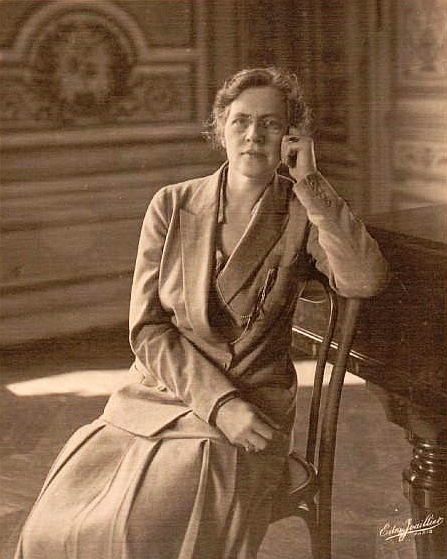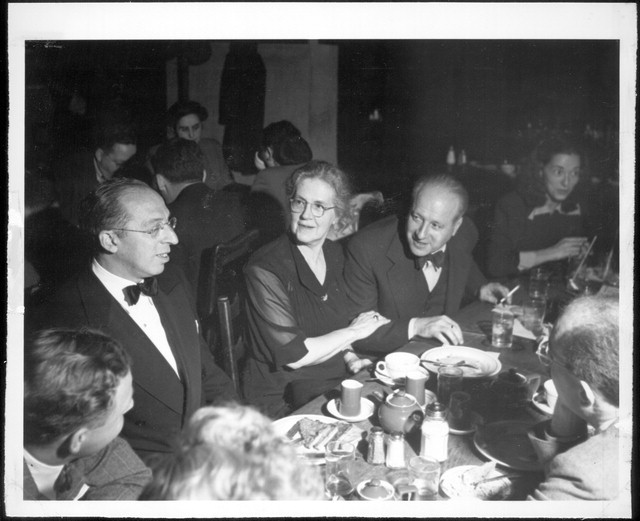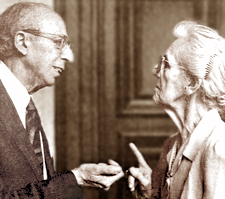So how exactly did Aaron Copland meet the famed Nadia Boulanger? To be honest, it appears he never wanted to. Well, at least he didn’t think he would. In the summer of 1921, Copland sailed to France to study composition at the American Conservatory, in Fontainebleau where he was “handed over to the head composition teacher of the Paris Conservatoire, Paul Vidal… [a] solidly trained, conservative man, known to the musical world in Paris as one of the top composers of the day— certainly one of the top teachers of the day,” but as Copland put it, “had nothing to tell me that was of interest.”1

- Nadia Boulanger
So his first teacher wasn’t a roaring success. What about Nadia Boulanger? Boulanger, at the time of Copland’s arrival, taught harmony, and as a subject, he “wasn’t interested in harmony at all. It was old stuff to [him].”2 It took a little persuading from a classmate of his, but Copland finally decided to observe what Boulanger had to offer. When asked about his first encounter, Copland stated “I don’t remember what Boulanger was doing, harmonically speaking, that was so striking. It was more the sense of warmth of the personality that was very striking— and the sense of involvement in the subject— that made it seem much more lively than I ever thought harmony could be— a sudden excitement about it all, and how it was the basis of everything when you really thought about it.”3 Copland, was hooked.

- Copland and Boulanger enjoying dinner together
Nadia Boulanger was described as being “very honest— sometimes brutally honest” yet very open-minded to what her students were doing. She was, in fact, a French woman who held herself with a “certain reserve,” but at the same time was quite “warm and friendly.”4 After deciding to study with her, despite the fact she was a female (which was “revolutionary” to Copland)5 the life of the young composer would never be the same. Through his relationship with Boulanger, Copland had the opportunity to meet famous composers such as Stravinsky and Poulenc and was even published by Debussy’s own publisher.6 Nadia Boulanger opened countless doors for Copland. As Copland put it, “it was more than a student-teacher relationship.” They were also great friends.
References:
1 Perlis, Vivian, and Van Cleve, Libby. Composers’ Voices from Ives to Ellington : An Oral History of American Music. New Haven, CT, USA: Yale University Press, 2005. 300.
2 Ibid., 300.
3 Ibid., 301.
4 Ibid., 302.
5 Ibid., 301.
6 Ibid., 303.

